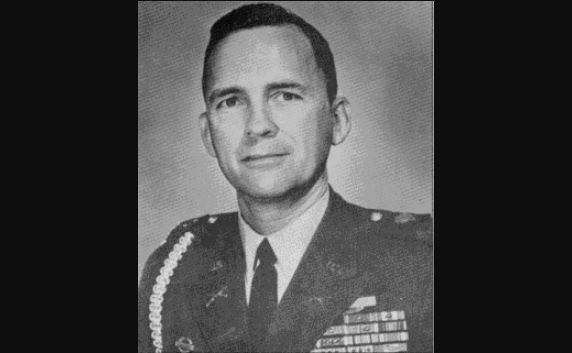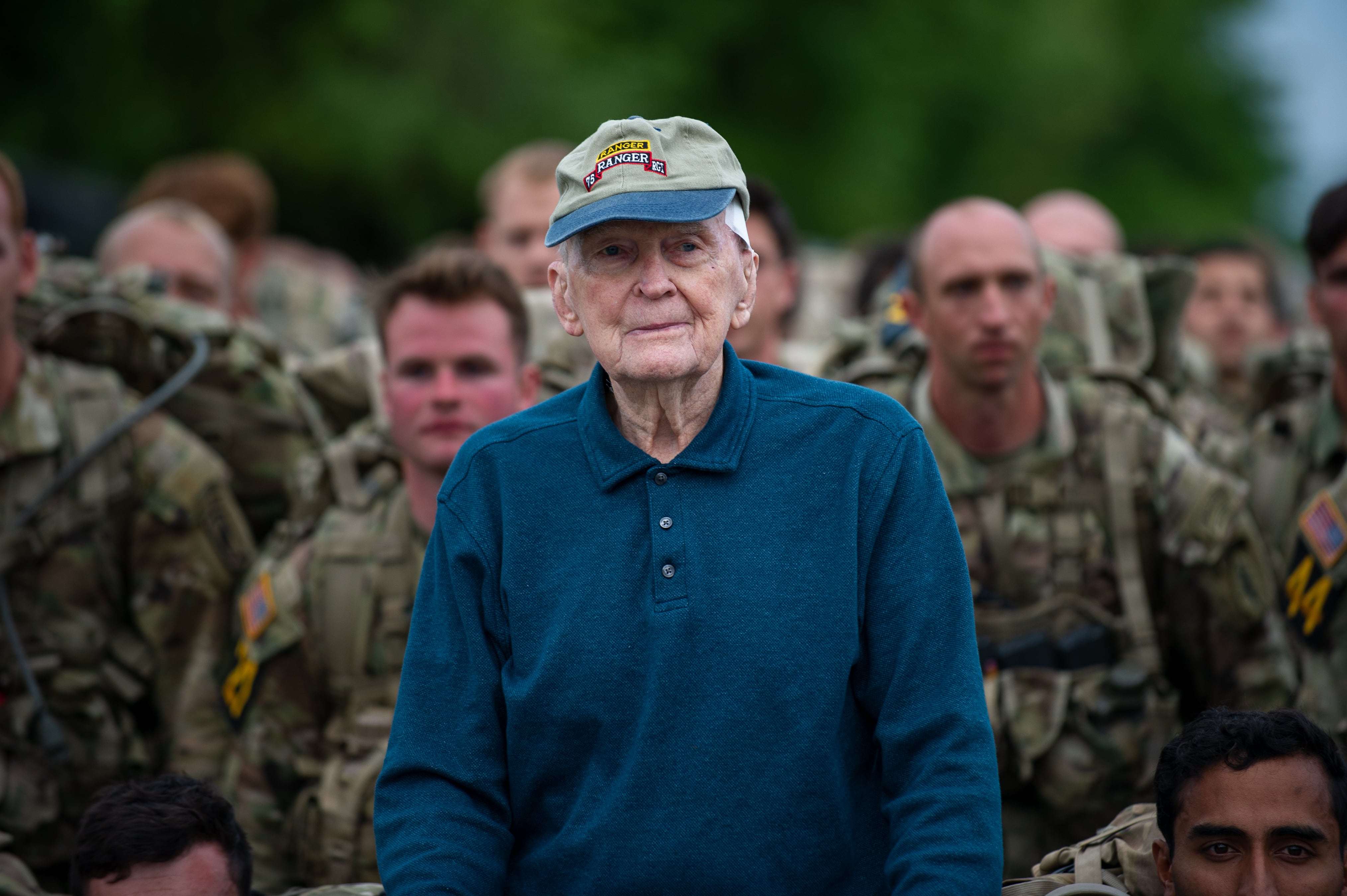Retired Army Col. Ralph Puckett was a young lieutenant when he led 51 Rangers and nine Korean soldiers across 800 yards of frozen rice paddies to seize and hold a key hill overlooking the Chongchon River in what is now North Korea.
They lost four Rangers and one Korean in the assault, but another battle was still to come.
During the night that followed, Puckett’s Rangers faced hundreds of Chinese forces counterattacking the hill. He would be wounded three times before ordering his men to leave him behind and retreat — a command they disobeyed.
Puckett previously received the Distinguished Service Cross for his actions during the battle for Hill 205 on Nov. 25, 1950. Seventy years later, that award is being upgraded to the Medal of Honor.
President Joe Biden spoke by phone with Puckett and his wife Friday to congratulate them, said John Lock, a retired Army officer who has been lobbying for the upgrade.
The phone call was first reported by the Washington Post.
The president also told Puckett that the administration would be coordinating with him this week to set a date for the ceremony, which is expected to be held at the White House, Lock told Army Times.
The 2021 defense policy bill urged the president to award the Medal of Honor to Puckett and three other service members. Decisions by the president have not been announced for the other three: Dwight W. Birdwell, Alwyn C. Cashe and Earl D. Plumlee.
The battle for Hill 205 was part of a counteroffensive that marked the Chinese entrance into the Korean War, destroyed the Eighth Army’s right flank and triggered a massive U.S. retreat.
The sheer number of Chinese forces surprised the Americans, including those sitting on Hill 205. A day before the battle, Puckett was briefed that there were 25,000 Chinese troops in his division’s sector.
“Well, I knew that violated our doctrine,” Puckett recalled for an oral history project. “When the United States Army made an assault or made an attack, the doctrine was to outnumber the enemy 2:1 or preferably 3:1. Well, they [the Chinese] outnumbered us 3:2, so I knew something was wrong.”

After initially taking Hill 205, which was laid with bunkers, the Rangers set up a perimeter and prepared their rocket launchers and machine guns for nightfall. The closest U.S. Army ground unit was more than a mile away.
“We were always alone, and tonight was to be no different,” Puckett said.
Waves of Chinese attacks came throughout the night. The assaults started with whistles from the Chinese lines, followed by mortar barrages, automatic weapons fire and hand grenades. Four Chinese attacks were repelled, thanks to close artillery strikes called in by Puckett.
“At about 0200-0230 in the morning, we heard the Chinese blowing their whistles, bugles, always the same thing,” Puckett said. He once again got on the radio to call artillery, but the cannons were busy supporting another unit and could not help.
“We are under great pressure, we’re crumbling, we’re being overrun, I just gave my unit the word to withdraw,” Puckett recalled telling the artillery crews by radio.
Throughout the assault, Puckett had repeatedly left the safety of his foxhole to observe the Chinese troop movements and to direct artillery fire, exposing himself to small-arms and mortar fire, according to his award citation.
By the time Chinese troops massed for their final assault, Puckett was wounded so seriously that he was unable to move, the citation stated.
“I had been wounded three times by then, and I was lying there in the foxhole unable to do anything,” Puckett said. “I could see three Chinese about 15 yards away from me, and they were bayonetting or shooting some of my wounded Rangers.”
Two privates first class, Billy G. Walls and David L. Pollock, charged back up the hill, shot the three Chinese troops and carried Puckett down the steep mountain face, through brush and back to the American lines.
Puckett, a 1949 West Point graduate, retired from the Army in 1971 after also serving in the Vietnam War. During his time there, Puckett, then a lieutenant colonel, was warded a second Distinguished Service Cross, two Silvers Stars, and three Legion of Merit decorations.
He was inducted into the Ranger Hall of Fame in 1992.
Puckett was born in Tifton, Georgia, and now lives near Fort Benning, where he maintains close ties to the 75th Ranger Regiment. In April, he visited and offered words of encouragement to Rangers participating in the annual Best Ranger Competition at the Army post.
Kyle Rempfer was an editor and reporter who has covered combat operations, criminal cases, foreign military assistance and training accidents. Before entering journalism, Kyle served in U.S. Air Force Special Tactics and deployed in 2014 to Paktika Province, Afghanistan, and Baghdad, Iraq.




